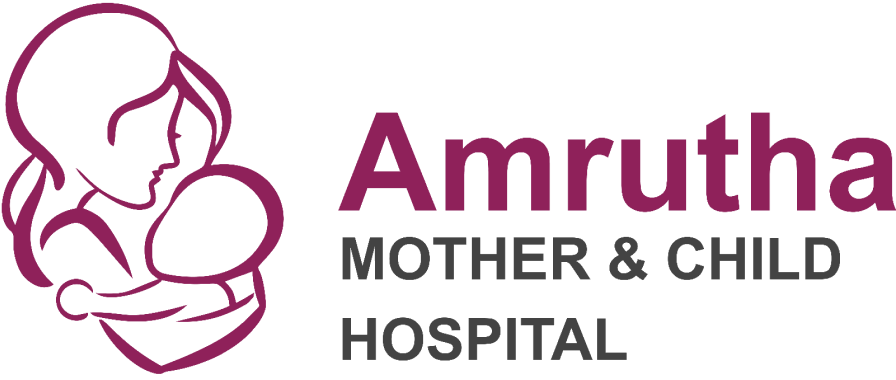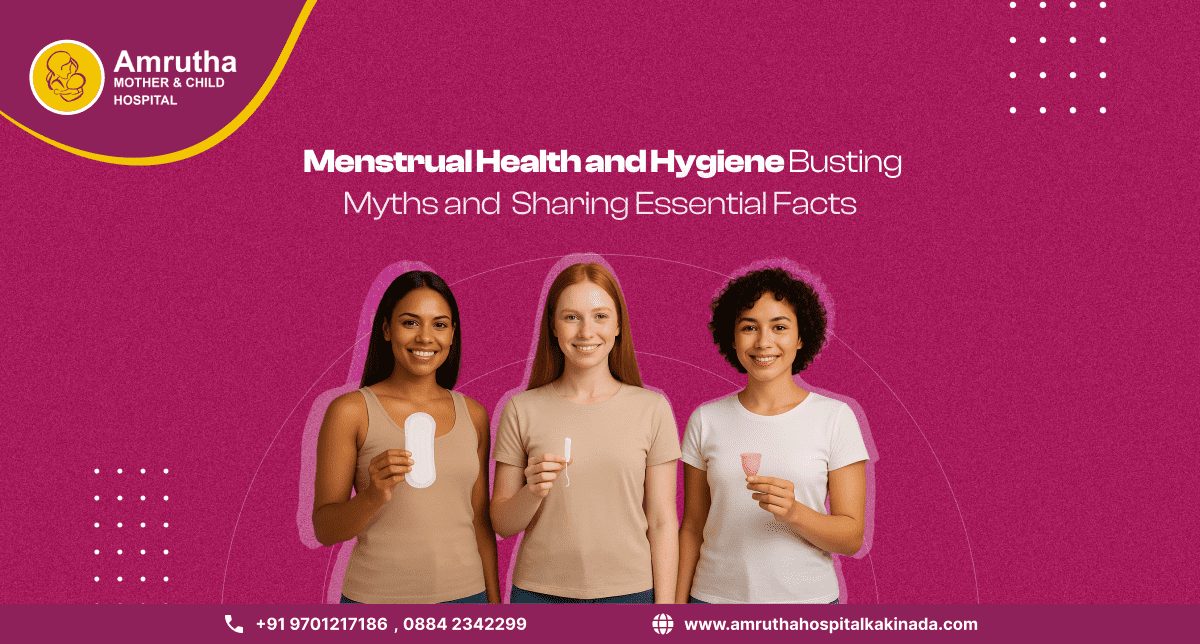Menstruation is a natural and vital part of a woman’s life. Yet, even today, menstrual health remains a topic surrounded by stigma, myths, and lack of awareness—especially in many parts of India. At Amrutha, we believe in empowering individuals with the right knowledge to lead healthier lives. Let’s break the silence, bust the myths, and focus on the facts about menstrual health and hygiene.
Understanding Menstruation
Menstruation, or a period, is the monthly shedding of the uterine lining through the vagina. It usually begins between the ages of 10 and 15 and continues until menopause. While it’s a completely normal biological process, many still feel uncomfortable discussing it openly, which can lead to poor hygiene practices and health issues.
Common Myths vs. Facts
Let’s address some widespread myths and the truths behind them:
Myth 1: Menstruating women are impure.
Fact: There is no scientific basis for this belief. Menstruation is a natural bodily function, just like digestion or respiration. Associating impurity with it only deepens stigma and prevents open conversations.
Myth 2: You shouldn’t exercise during periods.
Fact: Light physical activity like walking or yoga can actually help relieve cramps and mood swings during periods.
Myth 3: You shouldn’t wash your hair during menstruation.
Fact: There is no harm in maintaining your usual hygiene practices during your period. In fact, staying clean helps prevent infections.
Myth 4: Period blood is dirty.
Fact: Menstrual blood is just the shedding of the uterine lining along with blood. It is not harmful or impure.
The Importance of Menstrual Hygiene
Maintaining good menstrual hygiene is crucial for both physical and mental well-being. Here’s how you can ensure it:
- Use clean and safe menstrual products like sanitary pads, tampons, or menstrual cups.
- Change products every 4–6 hours to prevent infections and odor.
- Wash the genital area with clean water (avoid harsh soaps) regularly during menstruation.
- Dispose of used pads or tampons properly—preferably in covered bins or through eco-friendly methods.
- Always wash your hands before and after changing menstrual products.
Creating Awareness Starts with Us
Educating young girls and even boys about menstruation from an early age builds a culture of respect, understanding, and hygiene. Schools, parents, and communities must take the initiative to normalize conversations around menstrual health.
At Amrutha, we stand by the belief that awareness and openness are key to empowering women and girls. Let’s work together to ensure every woman has access to the knowledge and resources she needs to manage her period with dignity.
Final Thoughts
Menstruation is not a taboo. It is a sign of health and life. Let’s replace myths with facts, shame with support, and silence with conversation. Because when we educate and empower, we build a healthier and more equal world for everyone. Contact Us


